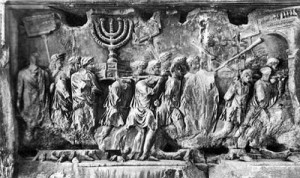Thoughts on Today’s Lessons for Nov. 13, 2016
First Reading: Isaiah 65:17-25Here, near the end of Isaiah, God speaks through the prophet after the people’s return to Jerusalem from their exile in Babylon. Now, as they face the big job of rebuilding the city and its temple, they are assured that God’s plan will come as a joy and a delight. There will be no weeping and no distress in the new Jerusalem. There will be no death in childbirth, no pain; all may expect joyous lives of 100 years of youthful strength! The city will be a holy place of peace, where people will enjoy the fruits of their own labor; the wolf, the lion and the lamb will live peacefully together, and none shall hurt or destroy.
First Reading (Track Two): Malachi 4:1-2a
The book of Malachi, the last of the prophets, falls at the very end of the Old Testament. In bibles that exclude the Apocrypha, we go directly from the end of this short book to the first chapter of Matthew’s Gospel. The prophet speaks to a people newly returned from exile, warning in apocalyptic terms that the great day of the Lord is coming. The prophet warns that God will separate evildoers from the righteous and destroy them; but those who revere God’s name will have healing and joy.
Canticle 9 BCP (Isaiah 12:2-6)
In place of a Psalm today we chant these verses from earlier in Isaiah, a passage that should be familiar as Canticle 9, “The First Song of Isaiah,” that we often read in Morning Prayer. Hard times lie ahead for the people at this point, but the prophet reminds us that God will be with them. Even in threatening times, even when we feel frightened and vulnerable, God will be our stronghold and our sure defense.
Psalm (Track Two): Psalm 98
Mirroring the prophet’s vision of God as great judge, today’s Psalm envisions God as fair and just judge of the world and all its people. God’s coming to judge the earth is a time to sing a new song, to lift up our voices, to express our joy so abundantly that even the sea, the lands, the rivers and the hills will jump up and join the celebration; for God’s righteousness has become know to all the nations.
Second Reading: 2 Thessalonians 2:1-5, 13-17
“Anyone unwilling to work should not eat.” We must take care not to read this through a lens of 21st century politics. These verses were meant for an early church community living in the spirit of Acts: “All who believed were together and had all things in common; they would sell their possessions and goods and distribute the proceeds to all, as any had need.” Cheating would have been unfair and corrosive to a community that lived by sharing. But in no way does this negate Christ’s call to give food to the hungry, drink to the thirsty, or any of the other ways in which we are called to show love to our neighbors.
Gospel: Luke 21:5-19
It is tempting, but wrong, to interpret scary readings about apocalyptic events and final judgement as prophesies about our present time. As the long season of Pentecost ends and Advent draws near, we will be hearing more of these in our Sunday readings. The evangelist we know as Luke wrote this Gospel around the end of the first century, some 70 years after the Crucifixion and 30 years after the Romans destroyed Jerusalem and the Temple. He is framing these events as a lesson from Jesus, bearing a truth for all times: God is with us. Even when we’re betrayed, scorned, hated and hurt, “By our endurance we will gain our souls.”

